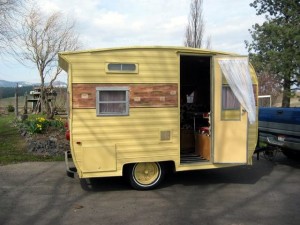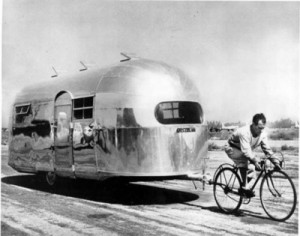Thirty-five years from now, most middle class Americans have abandoned the dream of home ownership. They live, gypsy-like, in their electric vehicles, traveling from temporary job to temporary job around the country. Social Security, Medicare, and Medicaid are fading memories of a lost golden age. Major advances in battery technology have come with a side product: the illegal, life-shortening drug called vent, which the terminally ill and elderly take, both to ease their pain and to support themselves by selling their drug-induced hallucinatory visions and memories to millions of online subscribers.
Tula Ann Decca and Bud Shinsky are two young people from different worlds, one forced out onto the roads by upbringing and economic necessity, the other sampling life on the road by choice. Fate gives them a child, but they are both highly immature, not ready for a shared life or shared parenthood. Eighteen year old Bud, son of a Long Island factory owner, tries to win back the love of gypsy Tula Ann, the seventeen year old mother of his infant son, after his self-serving lies drive her away. But Tula Ann has decidedly different ideas. And so does her uncle, Robert Decca, the ailing drifter who, thirty years before, founded the movement and lifestyle that changed America from the land of the rooted to the land of the rootless. Robert has terminal cancer. He wants to find Tula Ann, whom he hasn’t seen since she was a child, before he becomes an invalid and has to go on vent. He wants to bond with her and pass on to her his legacy: acting as secret venture capitalist of the gypsy world, funding gypsy entrepreneurs’ dream businesses.
Bud’s initial attempt to reunite with Tula Ann, who has become a member of the ChanningHammer crew of gypsies, goes terribly awry in the tomato fields of South Florida. After Tula Ann flees the ChanningHammers, Bud finds himself forced to take her place in the crew so that she will not be socially “kaputted,” denied a role in gypsy society for breaking her contract. Bud soon finds himself handed responsibility for the ChanningHammers’ resident vent head, David Zodi. Tula Ann bounces from job to job on the road, doing lighting and sound board work for an itinerant theater company, then working as a living history re-enactor at a Twentieth Century Christmas Village. Her jobs force her to find a nanny for infant Dean Moriarty, but the nanny, Margaret Spangler, carries a terrible secret. Will the rough life lessons that residence on the road provides to Bud and Tula Ann bring them closer, or drive them even farther apart?
No Direction Home asks these timely questions: what is the future of American capitalism? What will replace the American Middle Class Dream of college education and homeownership should that dream become obsolete, or stray out of reach for the majority of the population? Does globalization mean an endless economic “race to the bottom,” or will a new equilibrium be reached, different from what we Americans are used to now, but livable? How will society in future decades care for its increasing population of the very old and the chronically ill? How will it raise its children? Are we as a society becoming dangerously dependent upon electronic interfaces which can be obliterated by a solar flare at any second?


